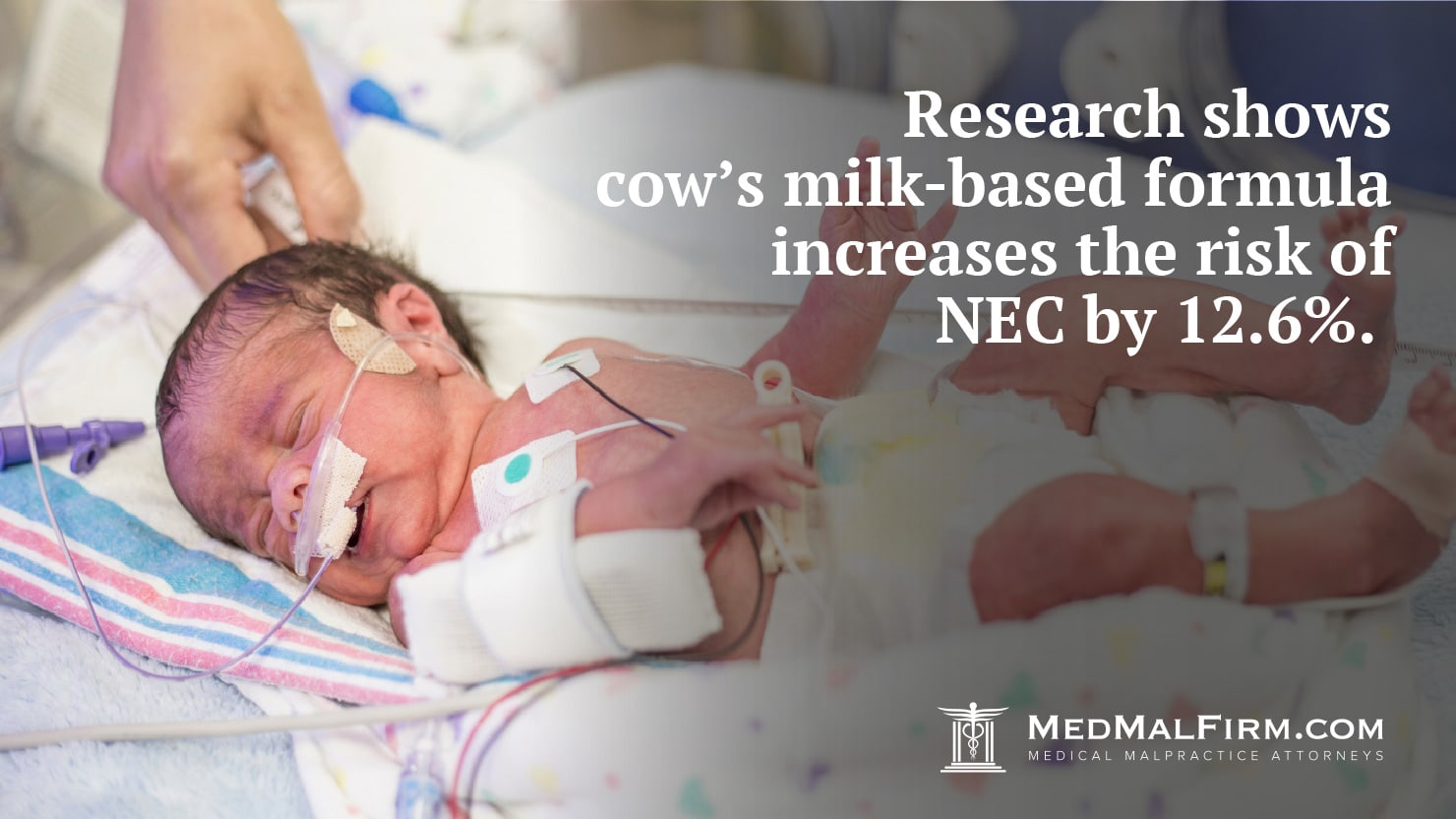
Research Trials Show Preterm Infants Fed Formula are at Higher Risk of NEC
In light of steady rates of necrotizing enterocolitis (NEC) among premature and low birth weight (LBW) babies, researchers continue to search for causes, assess risk factors and find ways to reduce the risk of NEC….
In light of steady rates of necrotizing enterocolitis (NEC) among premature and low birth weight (LBW) babies, researchers continue to search for causes, assess risk factors and find ways to reduce the risk of NEC. Increasingly, research shows that infants who are fed cow’s milk-based formulas are at a higher risk of NEC than infants fed breast milk alone.

What is NEC?
NEC is a dangerous medical condition that primarily affects premature newborns and those with low birth weight (LBW). NEC is a disease that develops in the intestines, which causes infection and inflammation. Over time, the walls of the intestines become damaged or die. This can cause perforation and subsequent leaking of intestinal fluid, sepsis or death.
Experts believe that the two primary risk factors for NEC are oxygen deprivation during birth, which can compromise intestinal health, and feeding the newborn bovine milk-based formula. When the newborn’s gastrointestinal system is compromised, he or she is at risk for serious complications and death.
Immediate diagnosis and treatment are important for reducing the risk of complications. However, prevention is the best way to protect newborns from the risks of NEC. Experts agree that the best way to reduce the risk of NEC is to feed newborns a strictly human milk-based diet.
Trials Show Formula Increases the Risk of NEC
In 2016, a multicenter cohort study was initiated to assess if breast milk reduced the risk of bronchopulmonary dysplasia (BPD), retinopathy of prematurity (ROP) and necrotizing enterocolitis (NEC). The study compared data from 1,433 infants born prior to 32 weeks gestation. These infants also were considered LBW.
Researchers compared the rate of neonatal complications among infants in the study. They assess complications among infants receiving only breast milk as compared to those fed only formula. The results showed that, while formula feeding aided in weight gain, it also increased the risk of NEC substantially. After controlling for other risk factors, the risk of NEC was increased by 12.6.
The conclusion made by researchers is that an exclusive breast milk diet reduces the risk of BPD, ROP and NEC. Therefore, a diet of bovine-based formula increases the risk of NEC.
Study Shows Improved NEC Outcomes with Breast Milk
In another study in 2015, researchers assessed the outcomes of NEC among infants exclusively fed breast milk. This was a multicenter retrospective cohort study assessing infants with LBW. The goal of the study was to compare outcomes among infants fed formula and those following an exclusive human milk-based diet (HUM).
There were a total of 1,587 infants included in the study from various states. The study assessed infants fed formula, infants fed human milk with bovine fortifiers and infants fed following the HUM protocol. Data was collected 2-3 years before and after an exclusive HUM diet protocol. The outcomes included NEC, BPD, ROP, and sepsis.
The results showed better outcomes among infants in the HUM group. There were lower rates of NEC and lower mortality rates:
- Incidence rate of NEC was 6.9%, as compared to 16.7% among infants fed bovine formula or fortifiers.
- The mortality rate among infants on the HUM diet was 13.6% as compared to 17.2% among the group fed bovine formula or fortifiers.
- The rate of late-onset sepsis was 19% as compared to 30.3%.
This study supports other trials and research showing that infants fed human milk have better outcomes than those fed bovine milk. This study also clearly demonstrates that there are multiple benefits to feeding newborns an exclusive human milk diet.
Learn More about NEC and Your Rights
If your child has suffered from NEC, it is important to learn more about your rights. Consumers have a right to know the risks of any product they purchase or consume. Sadly, many infant formula manufacturers don’t include a warning on their label that formula increases the risk of NEC. They also do not provide guidance for hospitals or healthcare providers about how to reduce the risk.
Infant formula manufacturers should not be allowed to provide dangerous products to the most vulnerable among us. If your family has been impacted by NEC, call us today to speak with one of our patient advocate lawyers. You can call us toll free at 877-887-4850, or you can reach us online via our online contact form.
Sources:
